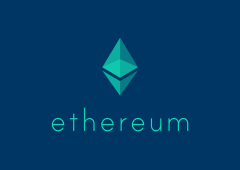Blockchain May Help Combat Censorship, Bernstein Analysts Suggest
04.09.2024 10:30 1 min. read Alexander Stefanov
In a time when AI content is on the rise and concerns about censorship grow, Bernstein analysts suggest that blockchain technology could be key in safeguarding truth.
They point to recent controversies, such as Facebook’s Covid-related censorship, Telegram CEO Pavel Durov’s legal issues in France, and X’s disputes in Brazil over misinformation, as evidence of the need for blockchain’s transparency.
According to Bernstein’s analysts Gautam Chhugani, Mahika Sapra, and Sanskar Chindalia, blockchain’s unalterable ledger could serve as a robust tool against censorship.
They argue that while traditional media and platforms like X are enhancing fact-checking and content moderation, Telegram’s unique approach—opting for decentralized data storage instead of end-to-end encryption—highlights its stance on privacy and resistance to censorship.
Telegram’s integration of blockchain for financial transactions and its crypto wallet, despite growing government pressures, reflects its commitment to privacy and its opposition to potential restrictions on freedom of expression.
Bernstein’s analysis raises important questions about the role of governments in censorship, the regulation of AI-generated content, and the definition of truth in today’s digital landscape.
-
1
Cardano and Ethereum Lead in Developer Activity as GitHub Commits Surge
14.07.2025 12:00 1 min. read -
2
Ripple Powers UAE’s First Tokenized Real Estate Project via XRPL
16.07.2025 21:00 2 min. read -
3
German State-Owned Development Bank Issues €100 Million Blockchain Bond
11.07.2025 7:00 2 min. read -
4
Tether Ends Support for Five Blockchains in Infrastructure Shift
12.07.2025 11:30 2 min. read -
5
BNB Chain Upgrades and Token Delistings Reshape Binance Ecosystem
16.07.2025 22:00 2 min. read
Chainlink Partners With Westpac and Imperium to Tokenize Finance in Australia
Chainlink has announced a major institutional partnership with Westpac Institutional Bank and Imperium Markets as part of Project Acacia—a joint initiative involving the Reserve Bank of Australia and the Digital Finance Cooperative Research Centre (DFCRC).
BNB Chain Upgrades and Token Delistings Reshape Binance Ecosystem
Binance continues to refine its ecosystem in 2025, with major updates spanning performance upgrades, token listings and removals, and new token launches—all reinforcing its focus on scalability and innovation.
Ripple Powers UAE’s First Tokenized Real Estate Project via XRPL
Ripple has taken a major step in expanding its institutional digital asset infrastructure in the Middle East by partnering with Ctrl Alt to support Dubai’s first government-backed real estate tokenization initiative.
Cardano and Ethereum Lead in Developer Activity as GitHub Commits Surge
Recent GitHub data reveals which blockchain ecosystems and individual projects attracted the most developer attention last week—a key signal of long-term project strength.
-
1
Cardano and Ethereum Lead in Developer Activity as GitHub Commits Surge
14.07.2025 12:00 1 min. read -
2
Ripple Powers UAE’s First Tokenized Real Estate Project via XRPL
16.07.2025 21:00 2 min. read -
3
German State-Owned Development Bank Issues €100 Million Blockchain Bond
11.07.2025 7:00 2 min. read -
4
Tether Ends Support for Five Blockchains in Infrastructure Shift
12.07.2025 11:30 2 min. read -
5
BNB Chain Upgrades and Token Delistings Reshape Binance Ecosystem
16.07.2025 22:00 2 min. read


